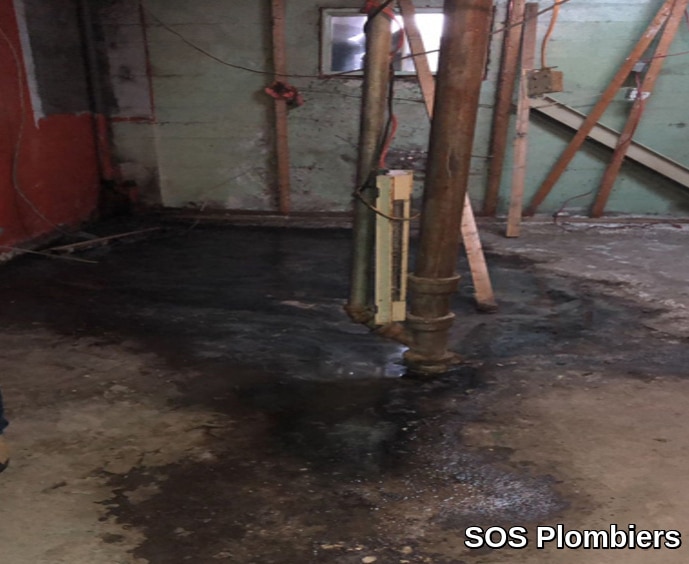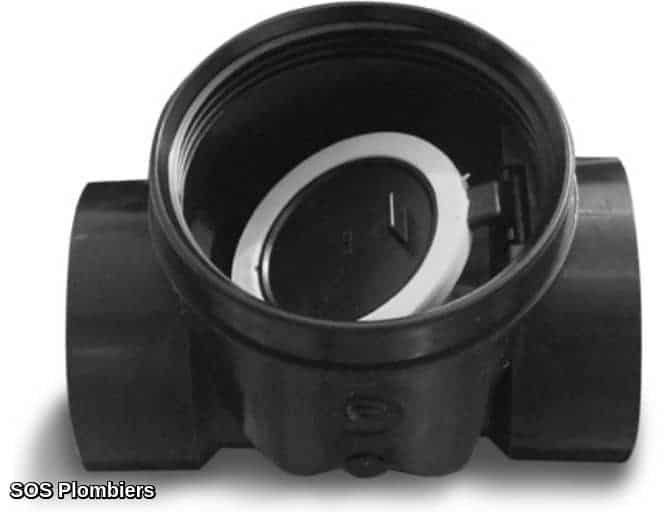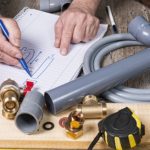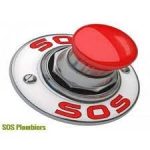A Sewer Backup: Everything you need to know about this phenomenon and its prevention
A sewer backup is a major concern for many homeowners. This issue, both untimely and disturbing, can seriously damage plumbing. In this article, we make it a point to understand the backup, its causes, and especially, how to prevent it with the help of tools like the check valve.
 The reasons behind sewer backups
The reasons behind sewer backups
A sewer backup is a phenomenon that concerns many homeowners because of the damage and inconvenience it can cause. It's an issue that can arise at any time and has multiple causes. To better understand this problem, let's look at the most affected elements and the most common reasons behind the sewer backup.
Pipes and drains: The first affected by the backup
Pipes and drains play a crucial role in the proper functioning of a home. They are designed to carry wastewater away from the property and towards designated drainage systems. Comparable to the veins and arteries in our body, they allow for smooth water circulation. However, when there's a backup, these components become especially vulnerable.
Their fundamental function exposes them to constant risks. For instance, the accumulation of waste or residues over time can reduce water flow, thus creating conditions conducive to backups. Moreover, since they are typically concealed, issues that arise within the pipes or drains are not always immediately visible, making their diagnosis and repair more complicated.
Common Causes of Backups
1. Blocked Pipes: One of the most common causes is pipe obstruction. This can be due to the accumulation of fats, hair, or other debris which, over time, reduce the flow capacity of wastewater.
2. Drains Clogged by Debris: Leaves, small objects, or other residues can accumulate in the drains, thereby obstructing the normal flow of water.
3. Tree Roots Invasion: Roots are constantly seeking water, and they can infiltrate the pipes, creating blockages. Over time, they can even damage or crack the pipes.
4. Improper Pipe Slope: For water to flow correctly, pipes must have a proper slope. If this slope isn't adequate, water can stagnate, which encourages backups.
CONSEQUENCES AND DANGERS OF BACKUPS
Sewer backups go well beyond a simple inconvenience. The consequences of this phenomenon can be costly, unpleasant, and potentially dangerous. It's essential for any homeowner or building owner to understand the implications in order to take the necessary measures to prevent and remedy it.
Immediate Danger of Backups on Drains
When a backup occurs, the drains, which are supposed to evacuate wastewater from the house, can quickly be overrun by this same water. This reversal of flow leads to several notable consequences:
- Accumulation of Polluted Water : Instead of being drained as planned, wastewater can accumulate in sinks, showers, and other drainage points. This water is often laden with waste, bacteria, and other contaminants.
- Unpleasant Odours : Stagnant and polluted water emits foul odors that can permeate the entire house, making the living environment very unpleasant.
- Health Risks : Exposure to polluted waters can pose serious health problems. The presence of bacteria and germs in these waters can lead to infections and other complications, especially if they come into contact with food or open wounds.
The Threat of Backups to Your Pipes
Pipes are designed to withstand a certain amount of pressure, but they are not invulnerable. Prolonged or frequent backups can severely test the structural integrity of these conduits.
- Cracks and Breaks : Pipes, especially older ones, can crack under the increased pressure from a backup. Over time, these cracks can grow, leading to water leaks and exacerbating the problem.
- Bursting : In extreme situations, the constant and excessive pressure from a backup can cause a pipe to burst. This can result in severe flooding inside the house, causing significant property damage.
- Premature Wear : Even if the pipes don't crack or burst right away, constant backups can accelerate their wear, reducing their lifespan.
 THE CHECK VALVE: A DEFENSE AGAINST BACKUPS
THE CHECK VALVE: A DEFENSE AGAINST BACKUPS
The check valve is an essential device for preventing sewer backups in residential and commercial properties. Designed to prevent water flow inversion, it plays a crucial role in protecting your home from the inconveniences and dangers associated with backups.
The Crucial Role of the Check Valve Against Backups
The check valve is your first line of defense against sewer backups. In the event of abnormal pressure, it automatically closes, preventing water from flowing back. This feature makes it invaluable during unforeseen events like heavy rainfall or obstructions in the main sewer system.
Installation And Maintenance To Prevent Backups
The effective placement and operation of a check valve largely depend on its installation and maintenance. It's crucial to ensure that it's installed by a professional to guarantee optimal performance.
Likewise, regular maintenance is necessary to check that the valve is working properly and isn't obstructed by debris or deposits. This not only prolongs the lifespan of your check valve but also ensures continuous protection against the risks of backups.
HIRING A PLUMBER: WHY AND WHEN?
Expertise and Quick Intervention
When faced with a backup issue, a qualified plumber can quickly identify the cause and suggest suitable solutions. Their expertise ensures an effective and lasting intervention.
Advice and Prevention
Beyond just repairs, the plumber can also offer valuable advice to prevent future backup incidents. Regular maintenance, performed by a professional, is the key to ensuring the longevity of your plumbing system.
Conclusion
Sewage backup, although common, is a phenomenon that can have disastrous consequences for a home, both materially and health-wise. Understanding its causes, recognizing the signs, and implementing preventive measures is essential for any homeowner wishing to protect their residence. The use of tools such as the check valve, combined with the expertise of a qualified plumber, provides a robust line of defense against this issue.
In the end, prevention, education, and swift intervention are the keys to managing and avoiding the dangers of sewage backup. Every homeowner must be proactive, as investing in prevention today can save significant expenses and hassles tomorrow.


